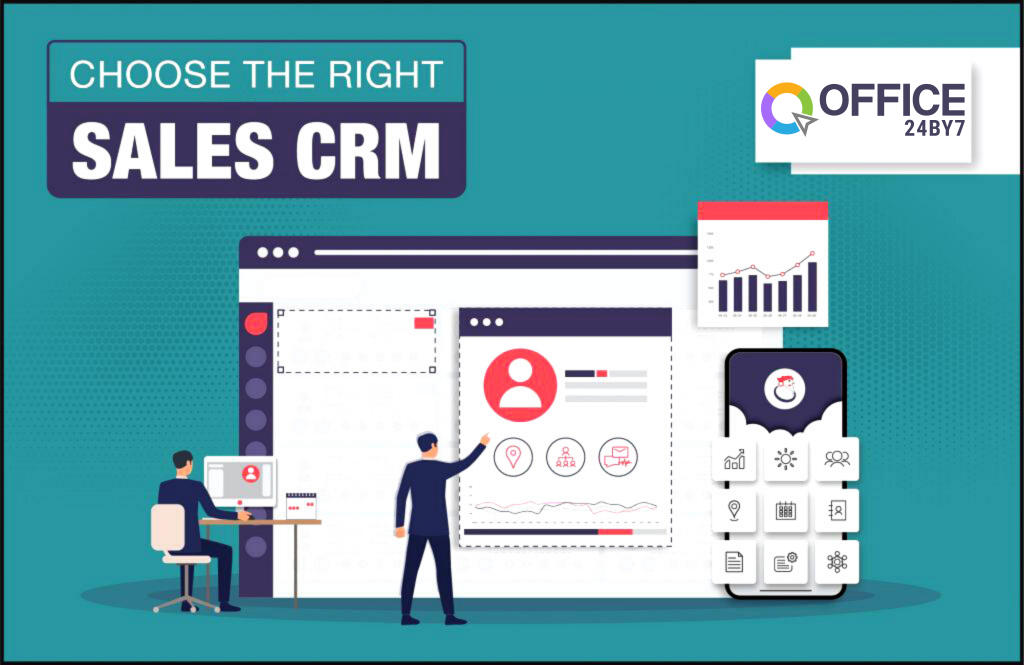
Well, your business is making all the right moves, and you’re upbeat about scaling to reach far and wide. That’s a ‘momentum’ for any business in the growth trajectory. But piling up Excel sheets to maintain customer lists and relations becomes tedious, right? In the CRM selection step, you need to make some smart moves.
A sales CRM will be of immense help to you in organizing customer relationships with much less effort. Mind you, the right moves at the correct times, leveraging technological advancements, make the difference. It is the common thread among all the big success stories.
How to choose a CRM becomes all the more important these days as CRMs increasingly become diverse. Now, let’s examine the top 10 steps in CRM selection for your business.
Identify Your Business Needs
Before choosing a CRM, you must identify your business needs, current and future.
At least, whether the sales CRM is for managing customer relations only or building the sales process should be clear. Because the additional features cost you extra, if not used, the extra features amount goes to waste.
For sales process management, you need most features to make the most out of a CRM.
Ease of Use
Various people in the organization use a CRM: sales executives, call center agents, and customer support teams, besides the managers and CXOs.
Hence, it should be easy to use. Using it shouldn’t require technical expertise, as people from sales and other fields are not good at technology.
The easier it is to use, the better the performance of the people who use it. So, ease of use should be preferred when choosing a CRM.
Flexibility to Customize
The workflow, reporting structures, and hierarchies are different for different industries.
CRM with fixed patterns may be of little use to you. So, you should see that the CRM is flexible enough to customize.
These days, many CRMs offer easy customization of the entire workflow, reporting, and dashboard view as quickly as with a few clicks or with drag and drop option.
Any such CRM will be the best choice and won’t hamper any future changes in the structures of the organization.
Hierarchy-wise Monitoring
In a structured workflow environment, oversight by the reporting heads and managers is necessary to effectively function and ensure time-bound deliveries.
Any unattended task and query must be considered, and appropriate actions must be prioritized. Likewise, every reporting manager needs to know what all the subordinates are up to to optimally utilize the sources for higher production.
A CRM software which provides for hierarchy-wise monitoring of all the resources is imperative for organizations. Hence, select CRM software that has adequate oversight mechanisms built.
Workflows and Approvals
One of the main functions of a CRM is to ensure a smooth workflow.
From the moment a lead lands on the CRM software, distributing it to the right agent, reaching out to nurture on the appropriate channel, and finally, signing the deal, the CRM should ensure a smooth run.
As the lead stages change, approvals for subsequent actions may be required. CRM software should have intuitive mechanisms for such approvals on the go.
Multi-channel Communications and Recordings
Customer engagement is the core function of CRM software in India. Even leads ought to be reached out to continue to convert.
A CRM equipped with inbuilt multi-channel communications helps you to make customer engagement more accessible than ever.
It should also have a provision for recording calls, messages, and interactions with the leads and customers to categorize the leads and take up re-marketing, etc.
CRM with inbuilt SMS broadcasting, Email, and Voice communications is a must.
No Limitations on Scalability
As an organization, you keep on growing. That’s one of the main mottos of any business. So, your choice of a particular CRM should consider this aspect.
CRMs with easy and unconditional scalability should be your priority. Switching CRM and customer data amidst the growth will severely affect entire operations.
So, scalability should be a prime reason to choose a CRM Software.
Reports and Analytics
Any organization must monitor the campaigns on different marketing channels, ROI, and other sales and call center agents’ performance.
For this purpose, various reports based on the choicest parameters are required. So, CRM should be capable of providing on-demand, comprehensive reports and deep analytics.
Easy Integrations
One of the critical components of any CRM includes easy integration.
As part of marketing and sales operations, you may use different tools, from ticketing to optimization. You may also use different lead-generation tools.
All of these need to be integrated into CRM. If a CRM can’t provide for integrations, it is useless. So, this is an important check point in the CRM selection process.
Mobile Application
Sales is a field job with a robust network of field sales executives. Regular meetings with the clients and instant access to inventory for the latest stocks must be complimented on the go.
Alerts about scheduled interviews and calls need to be notified to the sales team in advance wherever they are. So, a mobile application for the CRM with all the features, including instant contact and lead status updating, is imperative for the team spread over different locations.
So, CRM should also have a Mobile Application or mobile CRM.
Selecting the right Sales CRM software tool is a pivotal decision. Considering these ten crucial factors, you can empower your sales team and boost your business efficiency. Knowing what to look for in a CRM can make your business thrive.


